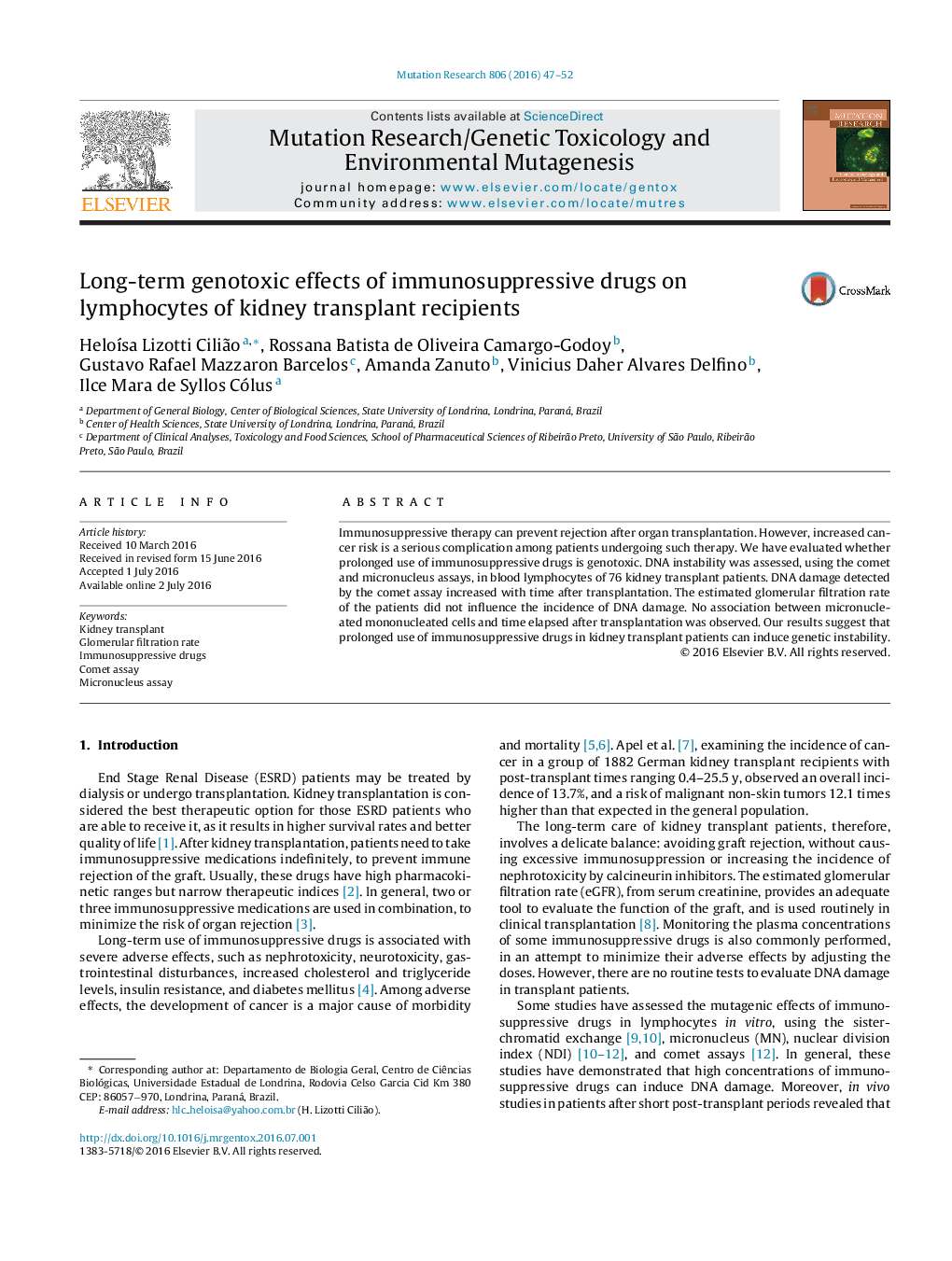| Article ID | Journal | Published Year | Pages | File Type |
|---|---|---|---|---|
| 2147808 | Mutation Research/Genetic Toxicology and Environmental Mutagenesis | 2016 | 6 Pages |
•There was no association between micronucleated cells and the time after transplant.•There was no difference in DNA damage between patients with better or worse eGFR.•The longer the time after transplantation, the greater the DNA damage in Comet assay.•Kidney transplant patients exhibited more DNA damage than healthy individuals.•The immunotherapy can induce genetic instability in kidney transplanted patients.
Immunosuppressive therapy can prevent rejection after organ transplantation. However, increased cancer risk is a serious complication among patients undergoing such therapy. We have evaluated whether prolonged use of immunosuppressive drugs is genotoxic. DNA instability was assessed, using the comet and micronucleus assays, in blood lymphocytes of 76 kidney transplant patients. DNA damage detected by the comet assay increased with time after transplantation. The estimated glomerular filtration rate of the patients did not influence the incidence of DNA damage. No association between micronucleated mononucleated cells and time elapsed after transplantation was observed. Our results suggest that prolonged use of immunosuppressive drugs in kidney transplant patients can induce genetic instability.
